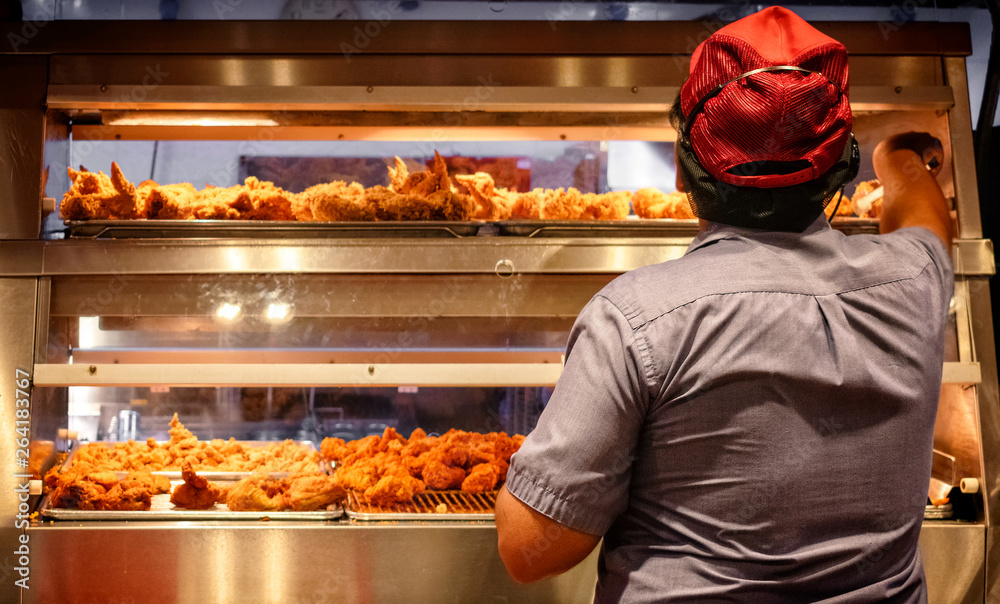A law (AB 1228) that raises the minimum wage for fast-food workers in California to $20 per hour, effective April 1, is causing confusion among Korean-American business owners.
AB 1228, sponsored by the Democratic Party and signed by Governor Gavin Newsom, is creating an emergency for Korean-American franchisees, many of whom are scrambling to seek legal advice due to its obscurity.

For instance, CJ Foodville’s bakery franchise Tous Les Jours recently sent a letter to its franchisees, stating that “Tous Les Jours has more than 60 stores nationwide and is therefore a franchise restaurant as defined by the law,” and that “stores in California must be prepared for AB 1288.”
Another Korean bakery franchise, Paris Baguette, is experiencing similar confusion. “When the bill was passed, we thought it only applied to large fast food companies like McDonald’s,” says Alan Hwang, who owns a Paris Baguette store in the Los Angeles area. “Later, we realized that we were included, so last week, our franchisees in California met on a video conference to discuss the issue, but we couldn’t come up with a clear solution.”
Currently, multiple businesses are categorized as fast-food restaurants under AB 1288, including bb.q Chicken, Bonchon Chicken, Yogurtland, Two Hands Corn Dogs, Mochinut, Waba Grill, and Flame Broiler, many of which are owned by Korean Americans.
“We are receiving numerous inquiries from Korean-American business owners about the requirements and applicability of their franchise,” said Yohan Lee, general counsel at the Korea Franchise Association USA (KFA USA). “Adding to the confusion is the fact that the $20 minimum wage also raises the minimum salary for salaried office workers in the fast-food industry to be exempt from overtime to $83,200, more than double the minimum wage.”
Business owners say the minimum wage hike leads to higher prices, which are passed on to consumers in a vicious cycle.
“We’re already struggling with inflation, and we just found out that yogurt places are covered by this law,” said Youngjun Kim, who owns a yogurt franchise near Los Angeles. “Raising the minimum hourly wage to $20 will increase our labor costs by nearly 30% in one hit, which is basically the government telling us not to do business.”
The Korea Daily reviewed the AB 1288 regulations and found that restaurants with 60 or more locations nationwide, including California, and food-related chains such as ice cream, coffee, boba, pretzels, and donuts are covered by the law if they have no table service or some limited facilities for ordering food or provide food and beverages for immediate consumption by customers, such as through to-go.
The definition of fast-food is also intricate. In the case of bakeries, the exemption requires that the business produces its own bread from dough in the kitchen and only sells bread as a standalone item. Furthermore, the definition of ‘bread’ requires that the bread must weigh at least half a pound per loaf when cooled and weighed. Virtually no bakeries qualify as such.
“Not only employers, but even employees who will benefit from the law will have to sift through the fine print,” said labor lawyer Jinni Kang, adding that even once the law is implemented, it will be a long road to find a clear interpretation.
It’s uncertain how the state will handle the confusion, the nonprofit news organization CalMatters reported on March 28.
Even state Rep. Chris Holden (D-41st District), who sponsored the bill, doesn’t have a clear answer.
“When asked by reporters about the exemptions, Holden was unable to answer questions,” CalMatters reported, adding that “lawyers are asking the Department of Justice for clarification on how the law will be applied, depending on the specifics of each franchise’s staffing system and operations.”
BY YEOL JANG, HOONSIK WOO [jang.yeol@koreadaily.com]




